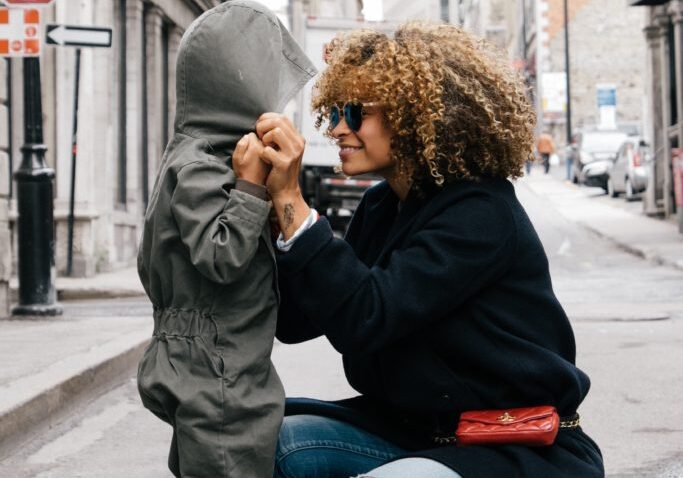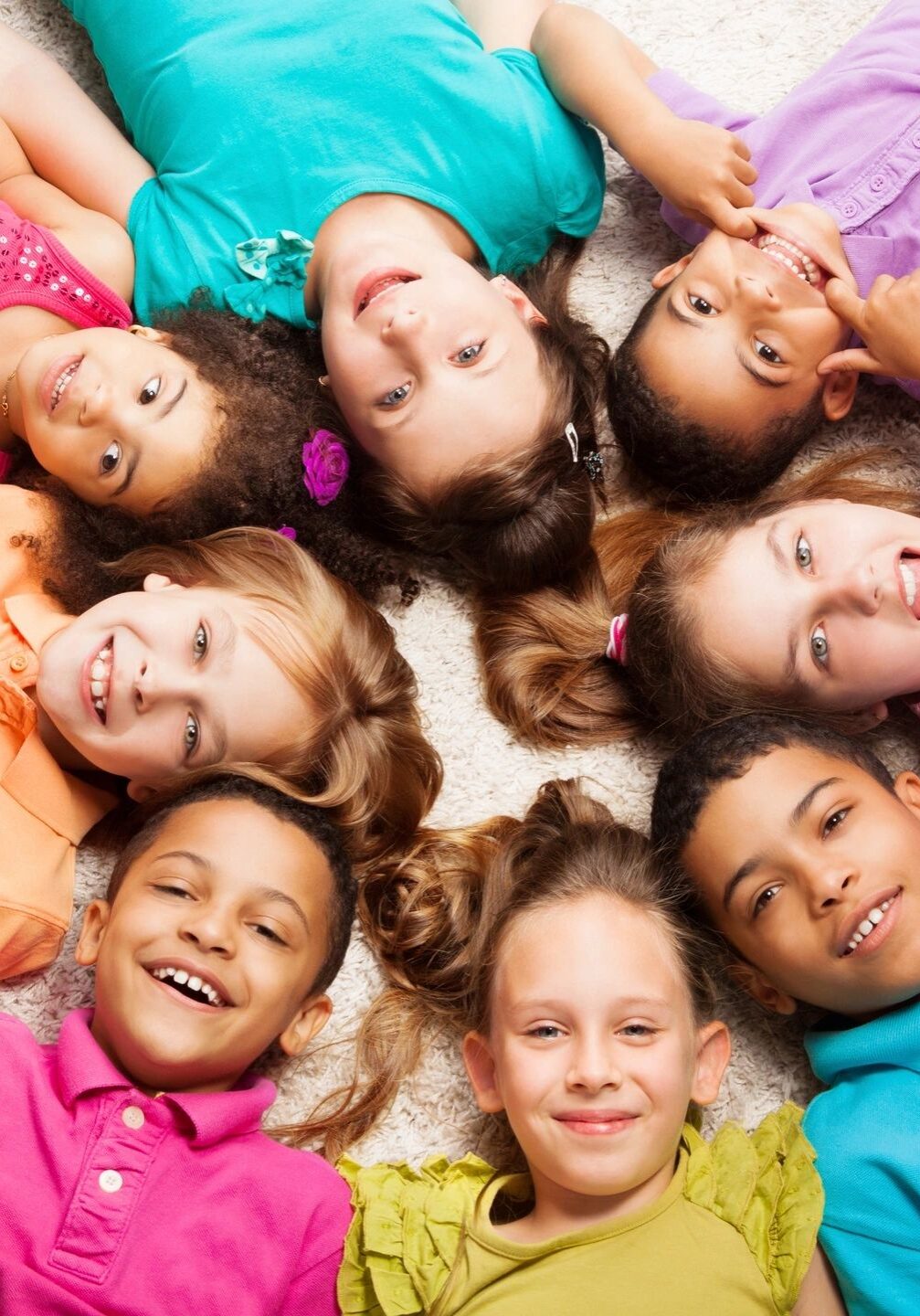Our goal is to educate parents, caregivers, educators, and professionals on the detrimental outcomes of physical discipline, provide research-based, sustainable, non-violent, and equitable alternatives to raising, teaching and being with children. Below you will find FREE RESOURCES, including links to articles, podcasts, workshops, and research to help you learn how to guide your children and set boundaries without resorting to spanking, yelling, shaming, and other punitive techniques; real-life tools to help you deal with your own overwhelming emotions, such as anger and guilt; and how to create a daily practice of intentional, peaceful parenting.
Every family and classroom can learn how to nurture responsibility, critical thinking and compassion in an environment free of spanking, yelling and shame.
STEP 1
Read and watch the FREE resources below and learn developmentally appropriate alternatives to spanking, yelling, isolation, coercion, & threats.
STEP 2
Become an Ambassador for Children through the The U.S. Alliance to End The Hitting of Children to help end the legalized hitting of children students in your state.
STEP 3
Talk to your pediatrician about how s/he can protect children and align with their professional organization by setting up a No Hit Zone.
STEP 4
Discover more resources and alternatives at StopSpanking.Org

Alternatives to Spanking
A discussion on why spanking is dangerous, research-based alternatives to spanking, and how to have important conversations about spanking with others.
Why should we stop spanking?
Children are the only living beings not protected by the law. It is illegal to hit another adult, an inmate, or a dog, yet our most vulnerable citizens have no protection from physical violence.
Research shows that paddling children can have harmful, adverse effects on child development. It not only teaches children to solve problems through violence, it is also related to:
- decreased internalization of moral rules
- decreased IQ
- increased aggression and antisocial behavior
- decreased mental health outcomes, and
- increased adult abusive behaviors including increased risk of being victimized by abusive relationships into adulthood

Hitting Children is Legal in Schools
- 19 states in the USA allow adults to hit children with boards despite the zero-tolerance policies on violence.
- Each year 1667,800 students are hit by public school faculty - and these only represent the reported accounts.
- Students of color and students with disabilities are hit by adults in schools at a disproportionate rate, indicating a need to look at the impact of trauma and systematic racism within our school system.
Hitting Children is Legal in Homes
- 30% of American parents spank their child before their first birthday.
- 50% of all toddlers are spanked 3x a week or more.
- Over 90% of all toddlers are spanked.
Spanking often leads to overt child abuse.
- Most physical child abuse begins with physical punishment.
- Parents who believe in spanking are 4-9 times more likely to abuse their children.


More FREE Webinars!
Videos on child development, self-regulation, discipline, punishment, communication, collaborating, critical thinking skills, and more.
Articles
- This Hurts Me More Than It Hurts You, Rebecca Eanes, Positive-Parents.Org
- Why Everything We Know About Discipline is Wrong, Dr. Shefali Tsabary
- How and Why Parents Stopped Spanking, Jennifer Andersen
- What's the Problem with Spanking?, Hand In Hand Parenting
- Alternatives to Spanking, Rebecca Eanes
- Instead of Spanking, Jennifer McGrail
- Spanking: What Difference Does It Make?, Vicki Hoefl
- Dealing with Your Own Big Emotions About Spanking, Sheena Hill of Parenting Works

Videos on Spanking Alternatives
- Modeling Peaceful Conflict Resolution A 4-minute video by Lori Petro, TEACH Through Love
- Conscious Parenting An 11-minute video by Dr. Shefali Tsabary
- Playful Ways for Kids to Learn About Emotions A 45-minute video with Robbyn Peters Bennett and Suzanne MacDonald Tucker
- Offload Anger Guilt & Frustration psychotherapist Amy Bryant speaks with Hand In Hand Instructor Kathy Gordon about how to offload anger, guilt & frustration.
Podcasts
- We Can Stop Spanking Psychotherapist Robbyn Peters Bennett and educator Patty Wipfler discuss sustainable alternatives to spanking (60 minutes).
- Are We Raising Spoiled Brats? Researcher and educator Alfie Kohn speaks to the notion that kids today are entitled, over-praised and grow up thinking they're more special than they really are (30 minutes).
- Stop Hurting Kids in the Name of Discipline Anna Seewald and Dr. John Rich discuss why traditional practices are harmful, alternatives to corporal punishment, and why it's time to make spanking children illegal worldwide (60 minutes).
eBooklet
Listening to Children
This booklet will help you understand
- Common causes/triggers for "off-track" behavior
- Why kids crave connection and limits
- How to set effective limits
- Why conventional discipline doesn't work for long
- How to handle your own emotional moments
What do you do when your child acts out? How do you tell a child "No" without triggering a power struggle? Parenting by Connection shows you how setting limits is actually a gift for your child.
Additional Articles
- Getting Started on Your Gentle Journey, LR Knost, Little Hearts Books
- This Hurts Me More Than It Hurts You, Rebecca Eanes, Positive-Parents.Org
- 4 Tip for Handling Public Meltdowns, Lori Petro, TEACH Through Love
- 5 Heart-Centered Practices for Managing Anger, Lori Petro, TEACH Through Love
- What to Do when your Child Won't Stop Hitting the Cat, Lori Petro, TEACH Through Love
- Managing Our Own Emotions, Colby Pearce
- A surprisingly Effective Alternative to Punishment, Claire Battersby
- What Is Your Anger Style, Robbyn Peters Bennett
- Work/Life Blend Checklist, Neca Smith
- And So We Try A Little Harder, Dare Ellis
- Gentle Parenting as a Journey Not a Destination, Abby Theuring
- Skirt the Struggle, Kindle the Connection: How to Unlock the Gifts of Resistance, Clémentine Malta-Bey
- What To Do When You Don't Know What To Do, Andy Smithson of TRU Parenting
- Help for Homework Hassles, Tracy McConaghie
- Flower Babies. Leana Bowler
- Why Punishment is NOT Okay, Marwa Farouq
- What To Do After You Lose It, Sheena Hill
- Reducing Childhood Anxiety by Jane Evans
- Teaching Kids to Manage Anger, Aggression & Fear by Ariadne Brill
- Mindfulness for Kids by Amy Phoenix
- Listening & Limits by Julianne Idleman of Hand in Hand Parenting
- 5 Things I Wish I'd Known When the Kids Were Small by Patricia Hope
- The Most Effective Skill to Help Parents Keep Their Cool by Andy Smithson
- Creating a Habit of Mindfulness When Angry by Amy Phoenix
- 5 Things Moms Need to Know About Meditation by Hunter Clarke-Fields
- An Invitation to Feel What You Feel Fully and Safely by Amy Phoenix
- Letting Go of the Way You Were Parented by Dr. Tiffanie Noonan
- Peaceful Parenting for Single Moms by Amy Phoenix
- When Parenting is Lonely by Alison Smith
- When Gentle Parenting Seems too Hard by Alison Smith
- Mindfulness: Establishing a Daily Sitting Practice by Amy Phoenix
April is Child Abuse Prevention month, and many parents report that their abuse of their child was a "spanking that got out of hand." This event is to help parents stop spanking altogether, and it culminates on April 30, International SpankOut Day, which began in 1998 to bring worldwide attention to the need to provide parents and caregivers with alternatives to the physical punishment of children. Educational events and programs are held globally as child advocates work toward having a future free of physical punishment for children worldwide. This learning event was created to support and encourage parents and educators like you wherever you are on your journey toward creating a more peaceful and equitable world for children.
Thank you for being here,
Amy & the NoSpank Challenge Contributors
Amy C. Bryant, EdS, LPC
Parenting Beyond Punishment
Wild Child Counseling, LLC
Play At Home Mom, LLC
